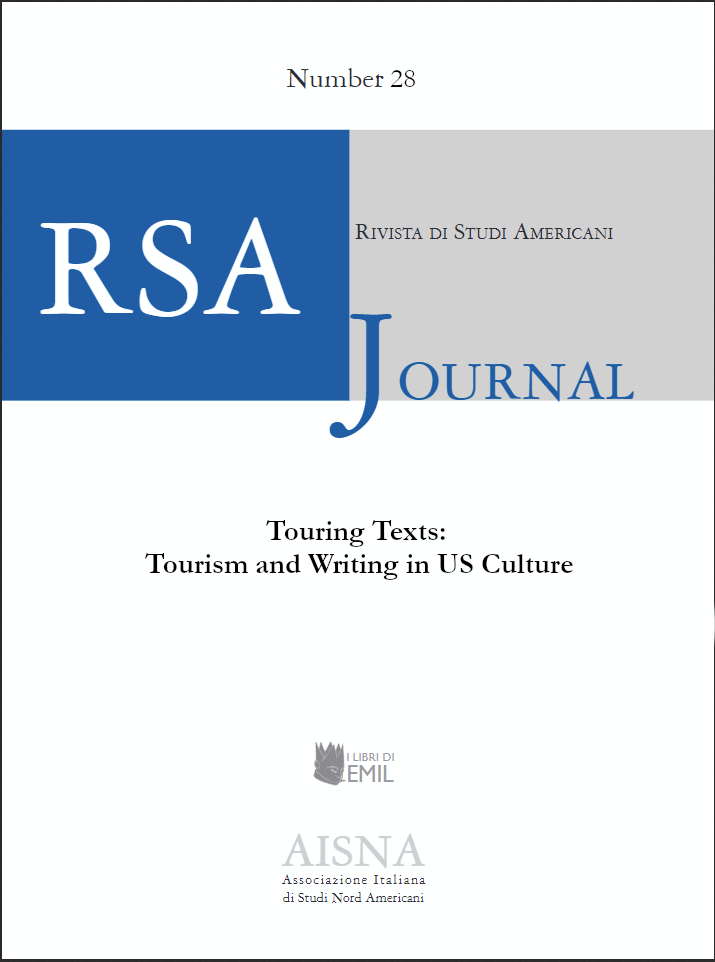The Gaze and the Iceberg
War Tourism in Ernest Hemingway’s “A Farewell to Arms” (1929)
Parole chiave:
the iceberg theory, tourism, war tourismAbstract
The essay investigates the theme of tourism in Hemingway’s A Farewell to Arms, focusing on the one hand on its connection with the novel’s representation of war, on the other on its connection with Hemingway’s “Iceberg Theory.” On the basis of a comparison between the latter and Dean MacCannell’s notion of “tourist authenticity,” the analysis suggests that the tourist-like activities featured in the novel resemble moving pictures rather than static photographs. Refusing to reveal the “inner” significance of places and experiences, Hemingway’s representation of tourism first appears as a mere evocation or fantasy on the protagonist’s part, then assumes a more realistic dimension in the Milan section, to be eventually recast as a sort of full-blown vacation ironically taken amidst the tragedy of the conflict. The novel’s final chapters reinforce the idea that, for Hemingway, tourism could be yet another moral and especially aesthetic equivalent of the war he otherwise seems to utterly reject.
##submission.downloads##
Pubblicato
Fascicolo
Sezione
Licenza
Avviso sul Copyright
RSAJournal applica una licenza CC BY-NC-ND a tutti i suoi contributi. Questa licenza consente agli utenti di copiare e distribuire il materiale in qualsiasi supporto o formato solo in forma non adattata, per scopi non commerciali e a condizione che venga esplicitato/a l'autore/autrice dell'opera. CC BY-NC-ND include i seguenti elementi:
- BY: L'autore deve essere riconosciuto come tale.
- NC: Sono consentiti solo utilizzi non commerciali dell'opera.
- ND: Non sono consentite opere derivate o adattamenti dell'opera.
Gli autori che pubblicano con questa rivista accettano i seguenti termini:
- Gli autori conservano il copyright e tutti i diritti di pubblicazione per i loro contributi alla rivista.
- Gli autori concedono alla rivista il diritto di prima pubblicazione in base alla licenza internazionale Creative Commons Attribution-NonCommercial-NoDerivatives 4.0, che consente ad altri di condividere l'opera non modificata per scopi non commerciali a condizione che venga esplicitato/a l'autore/autrice dell'opera e la sede di pubblicazione iniziale (questa rivista).
- Gli autori sono in grado di stipulare accordi contrattuali separati e aggiuntivi per la distribuzione non esclusiva della versione pubblicata dalla rivista (ad esempio, per inserirla in una repository istituzionale o pubblicarla in un libro), con l'indicazione che il contributo è stato precedentemente pubblicato in RSAJournal.




